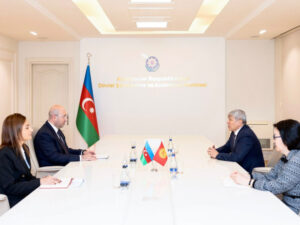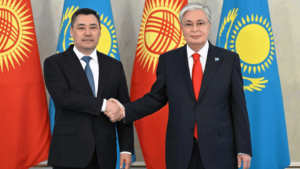Kyrgyzstan Faces 3.9 Billion kWh Electricity Deficit, Says President Japarov

Bishkek, The Gulf Observer: Kyrgyzstan is grappling with an electricity shortage of 3.9 billion kWh, President Sadyr Japarov revealed in a recent interview. The President attributed the crisis to a lack of investment in hydropower infrastructure over the past three decades.
“Not a single hydropower plant was built in the last 30 years. If at least one small hydropower plant with a capacity of 30 MW had been launched annually, the country would not be facing such a critical shortage of electricity during winter,” Japarov stated.
Despite ongoing efforts to construct small hydropower plants, the gap between electricity consumption and production remains significant. The President noted that industrial growth, the expansion of social facilities, and the commissioning of large energy-intensive factories are driving an annual increase in electricity demand.
Japarov highlighted that the prime cost of electricity production stands at 2.72 soms per kWh, yet it is sold to citizens at a subsidized rate of 1.1 soms per kWh. Additionally, 69,000 families benefit from electricity priced at 0.55 soms per kWh, while 186,000 consumers in mountainous areas receive power at 1.1 soms without restrictions.
However, the President pointed out that low electricity tariffs contribute to inefficient energy use. “Our citizens sometimes show indifference. Because of low prices, they do not save electricity. A simple example: lights are left on in rooms where they are not needed,” he said.
Japarov urged citizens to adopt energy-saving practices, emphasizing the impact of wasteful habits on the Toktogul reservoir, the nation’s primary water resource for electricity generation. “Every light that is on represents a discharge of water from the Toktogul reservoir. Therefore, please save electricity,” he appealed.
The President’s remarks underscore the urgent need for energy conservation and infrastructure development to address Kyrgyzstan’s growing energy challenges.


